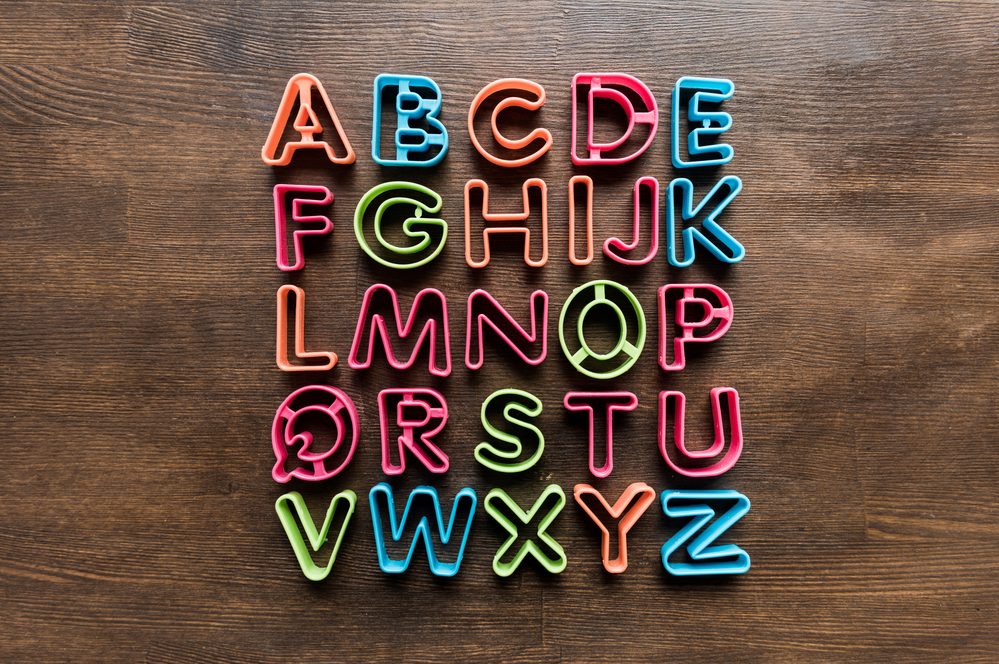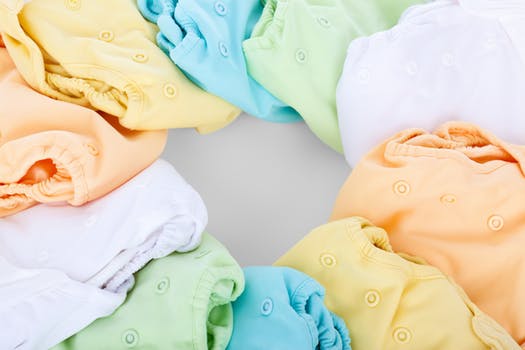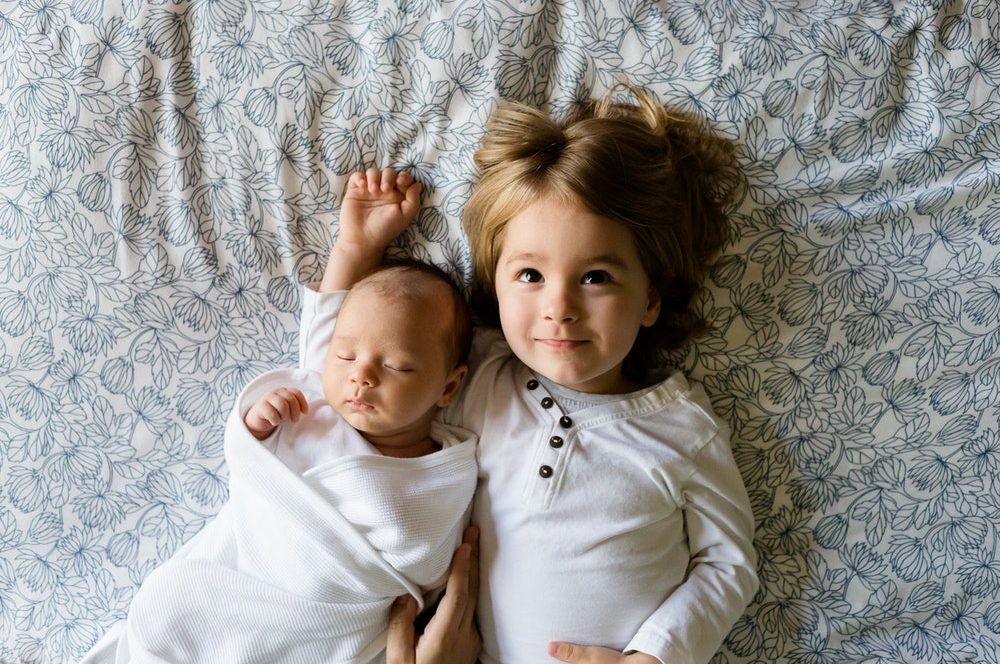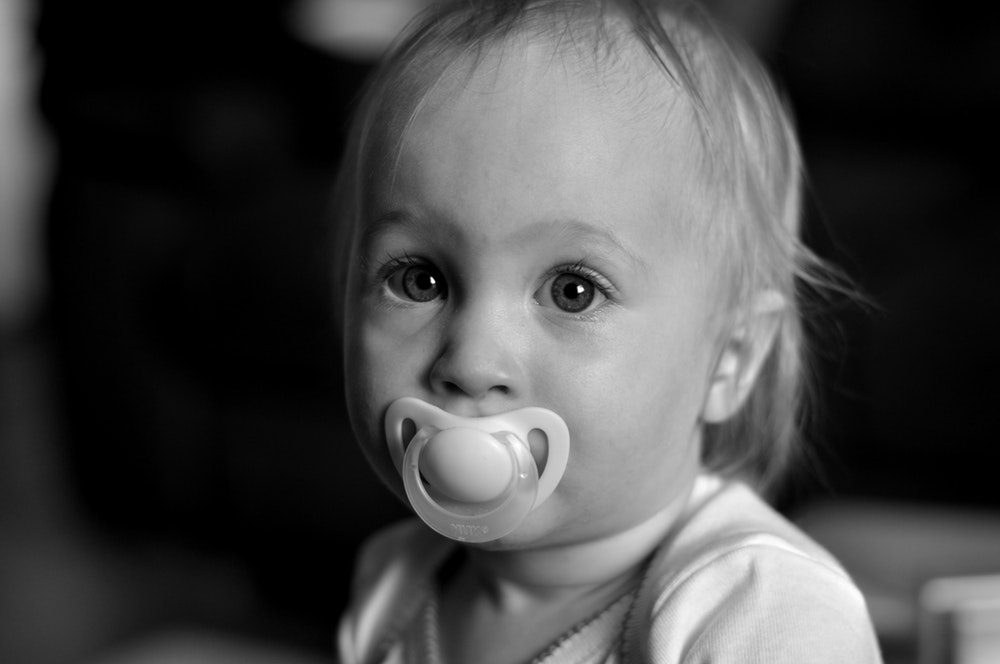Baby Names. Unique or Traditional? Family Name or Celebrity? Religious? What if it rhymes with a bad word…? The stress of choosing a name for your baby can be harder to deal with than worrying about whether to ask for an epidural. Will your family be insulted if you don’t include one of their names? What if you choose cousin Alan’s name instead of your father’s? How many times have you considered having a third child just to make sure every side of the family is appeased in the name game? Relax. This is your baby.
If you are looking for a unique name for your baby, or you want a truly symbolic name, you need to know the top choices for the baby names that parents are selecting for their kids. Each name has a meaning, an origin this is the name that the child will be living with for the rest of his or her life. Give them the right name! Here is a list of the top 100 baby names for either girls and boys so that you can make your choices about which name you should go for (or which popular ones to avoid!).
Up to 30 % of parents of young children encounter difficulty with getting their little ones to fall asleep or stay asleep. Sleep is important for children’s health and development. Lack of sleep in children is known to cause learning and memory deficits resulting in difficulty attaining age appropriate milestones for younger children and poor academic performance in school aged children. It is also reported that lack of sleep in children can result in irritability, depression, hyperactivity and aggression. Moreover, disturbed sleep in children often causes stress on the entire family. Contrary to belief, children do not outgrow sleep problems and if left untreated, sleep disorders are more likely to persist, but many still struggle with ways to get your baby to sleep?
In order for children to learn and develop, they need to be well rested to be at their optimum for taking in new information and accomplishing motor and cognitive milestones. Parents should practice and teach their children good sleep hygiene techniques to promote better sleep. The term sleep hygiene relates to sleep behaviours that expose a child to activities and cues that prepare and promote them for well timed and effective sleep. Here is a top 10 list of good sleep hygiene practices to teach your children:
10 Ways to Get Your Baby to Sleep
• Being active during the day. Age appropriate activities are essential to help children establish good sleep-wake cycles. It exposes them to daylight and activities throughout the day which is thought to help increase the release of a hormone (melatonin) at night to help children sleep. Activities for an infant such as tummy time or a toddler playing at a park on swings, climbing, sliding etc… Children are meant to move and sedentary activities such as television are thought to hinder a good night’s sleep.
• Routines help children understand what is coming next; this allows them to anticipate what is happening in their day.
• Establish a bedtime routine to allow them to wind down and get themselves ready to transition from wake to sleep. Take approximately 30 mins of quiet time doing relaxing activities prior to getting your child to sleep.
• Keep to a fairly predictable schedule during the week and weekends e.g. bedtime/naptimes should not vary more than one hour either side of regular bedtime. Most children are in bed by 730pm every night. Autumn is the best time to put children to bed earlier and benefit from the daylight savings time change to help with the transition.
• Try not to feed your child food containing caffeine 4-6 hours prior to bedtime (e.g. cookies or muffins containing chocolate), it acts as a stimulant and keeps children awake.
• The Canadian Paediatric Society recommends no television for children under two years of age. If you let your child watch television ensure that they do not watch any at least 2 hours prior to bedtime, this activity stimulates children instead of calming them. Try reading a favourite book or singing some bedtime songs to help transition them to calmer activities.
• For younger children, research studies report that infants who learn to settle themselves are more likely to discover self-soothing techniques and are better sleepers by 6 months than infants whose caregivers assist infants to sleep through various activities e.g. feeding or rocking to sleep.
This does not mean letting your child cry it out but rather letting them settle themselves.
• Noise reduces sleep time, especially in deep sleep, and increases light sleep e.g. a party going on at next door neighbours. During light sleep, noises can wake a person more easily. Try using a white noise machine.
• When the room temperature is too hot, time in deep sleep is decreased. In a room too cold, it takes longer for a person to get to sleep. Recommended room temperature for sleeping is between 16 and 20 degrees Celsius.
Need more ideas? We’ve rounded up the ‘experts’ – Elizabeth Pantley and Richard Ferber.
Jennifer Garden, a registered health professional (occupational therapist) and mother of two year old twins!
My baby’s sleeping routine now that she’s 3 months old has changed drastically and I don’t know why. By 3 months she should be sleeping longer not less right?
Many people say that the diapers you begin with are the diapers you will use until toilet training. We would have to concur. Our hospital made us use cloth from day one (it’s easier to see signs of urination and make sure baby is getting enough to eat). We could have done without the diaper pins (ouch!!), but now that we have cloth diapers with snaps and velcro, we feel pretty confident. How many people do you know bought cloth and then returned them after using disposables at the hospital? Here is a Cloth and Disposable Diaper Cost Comparison sheet.
I caught wind of these things and I absolutely had to see for myself – Milkscreen test strips. Created for the mom that wants to enjoy an occasional drink but make sure she is not passing any alcohol onto baby, Milkscreen test strips are the first ever at-home tests to identify the presence of alcohol in breast milk.
Alcohol can pass through the body into breast milk. About 2% of the alcohol you consume will enter your bloodstream and breast milk. Because everyone metabolizes alcohol differently, the amount of time it takes for the alcohol to leave your breast milk also varies. The only way to know for sure that alcohol is not present is to test the breast milk.
Yeah – I was always a bit rude to servers who refused to give me a glass of wine if I had a baby in my arms. Pump and dump? Really? (That’s not a solution. Alcohol is not trapped in breast milk. It is funneled through breast milk just as it is through your bloodstream, and pumping and dumping will just make you produce more milk a few hours later and feel uncomfortable.).
Anyway. I am an advocate of a breathalyzer in a car, and think a strip that tells you if you should or should not breastfeed is great. Any tool that can facilitate you being a responsible parent is amazing. It’s so good to have tests to know whether you are physically doing well, especially when you want to do the best you can for your baby.
If you’re like me, when you found out you were having twins, it was both a complete shock and a major adjustment to your life. My family size went from a comfort 4 (mommy, daddy, daughter, son) to a very crazy and gender-unbalanced 6 (mommy, daddy, daughter, 3 sons). But aside from that adjustment, I made so many mistakes as a mom of twins it’s not even funny. Although I had 2 kids already, I flubbed it by not thinking how different twins would actually be. So please, listen up and practice what I didn’t preach, it’ll save you time and many gray hairs!
The mistakes new moms of twins often make:
1. Not having enough stuff. When you find out you’re blessed with twins or even more, start stockpiling. Seriously. Diapers, wipes, formula, clothes, equipment…whatever. Even if the diapers and clothes are too big, take them, because your babies will grow and they will fit eventually. Shop in bulk. Go in on package deals with friends and family. Believe me, you’ll need it all. Having plenty means an immeasurable amount of peace of mind, and that’s priceless.
2. Skipping naptime. No, not baby naptime–your naptime! You need to be sleeping when they’re sleeping. Heck, sleep when they’re awake if you can! If you’re nursing, it’s especially important, because milk supply is adversely affected by poor sleep habits and stress.
3. Not having the right equipment. You may think you can skip the twin stroller, but you’re wrong. You need it. Also, make sure you have the right kind. If you can afford it, get 2: one side-by-side for wide-open spaces like for taking walks outside, and one tandem for things like shopping, where your space and maneuverability is limited. Sometimes you’ll have to take the babies out alone, and you’ve never been through the hell that is having to hold one twin while trying to drive the other in a regular stroller. NOT recommended.
4. Getting your babies confused. I confess, I didn’t have this problem that often, as far as confusing them with each other, since my boys are fraternal. However, I DID get confused, constantly, about who’d been recently changed, who was nursing when, etc. I ended up doing things like carrying around a washable marker, which I used to dab a little mark on the foot or hand of the twin that had recently been fed or whatnot. I also used the same tactic with my own breasts…juggling two boys on opposite schedules, I forgot which breast had been nursed from last…ack.
5. Being nitpicky and obsessed with perfection. Face it: your house will get dirty. The laundry will go un-folded, the dust will accumulate. Let go of your OCD-based standards, especially if you have older kids adding to the chaos. Embrace reality: your house doesn’t need to be a fashion plate. What can’t be postponed is your twins’ childhood. They’ll only be tiny for so long. Cherish every moment, which is so much more important than keeping your drapes dust-free!
6. Forgetting about yourself. What I mean is, you’re not just a mom of twins or whatever. You’re a woman, you’re YOU. Take some time to remember that. Take off the spit-up encrusted shirt and shower. Put on something pretty, even if it’s just to lay on the couch. I recommend asking hubby for a nice silk bathrobe, a short one, the kind that makes you feel like a princess…or a geisha…whenever you wear it. Shower. Brush your teeth and hair. Take a walk, see the sky, have a meal that doesn’t involve “here comes the train!” or sterilizing bottles.
7. Not getting support. This is a broad one. At home, get as much support as possible, from friends, family, neighbors, whatever. Accept any and all offers to cook, clean, carpool, it doesn’t matter. It also means, seek shelter and advice from other moms in your position. Twin resources abound, and other proud twin moms love to support each other and share their experiences and advice.
So, you did it: you produced a baby. You’re understandably pleased, and you think your baby is just perfect. You rejoice in the little fingers and toes, you gurgle over every detail about him or her. You think—no, you know—that you have the smartest, most beautiful child on earth. Then, you go to the doctor for a checkup, and they tell you the baby is behind in some developmental milestone.
Perhaps she’s not long enough, or her weight is less than expected. Maybe he’s not holding his head up yet, or rolling over like the books say he should be by his age. There are a zillion things the doc can tell you at those appointments, and those developmental milestones are important, but they’re also not set in stone. Consider them developmental milestone suggestions. There are, however, some that are very important and delaying attention when these milestones aren’t reached can delay treatment that could benefit your child, should there be some kind of physical or physiological problem present.
What do you do? Do you panic? Do you shrug it off? Most doctors will tell you what things you can relax about and which you should concern yourself over, but here is some information to have in advance, to save yourself the stress if you find yourself on the receiving end of this distressing news.
1. Don’t stress out. The charts and lists of events and when they “should” happen are averages—some children reach milestones sooner than others, and some later. For instance, if your baby is a little chubby bunny, he may not roll over or walk as soon as, say, your girlfriend’s lithe little lady of the same age. As long as the baby is healthy, according to the pediatrician, you shouldn’t be worried, even if they’re a little above or below where the charts say they “should” be.
2. Understand the Differences. One thing about those charts is that they’re not sex-differentiated, but gender does make a difference in some things. Ask your doctor and they’ll tell you. For example, girls tend to talk sooner. Go figure on that one!
3. Know the Important Milestones and Keep An Eye On Your Baby. There are some items that need to be observed carefully, though. If your baby isn’t lifting his or her head by six months, or hasn’t rolled over, or doesn’t respond to visual or audible stimuli, you need to have that investigated. It’s one thing to be a little chubby—it’s another altogether to miss major gross and fine motor milestones.
If your baby hasn’t reached these milestones by six months, see your pediatrician immediately:
- not responsive to sounds by 6 weeks
- has a “permanent fist” (is not opening his or her hands) by six weeks
- not focusing on objects or following them with his or her eyes by three months
- not smiling by age three months
- not sitting up (supported) by six months
- not babbling (making nonsense sounds and purposeful vocalizations) by 6 months
- has a persistent squint
If your baby hasn’t reached these milestones by a year, see your pediatrician immediately:
- not sitting up (supported) by six months
- not sitting up unsupported at nine months
- demonstrates hand preference (right versus left) at twelve months
When most new mums bring their freshly-minted babies home from the hospital, they are still in that wonderful stage where all they do is sleep. Then…whoa. They wake up. And some babies wake up with a vengeance, discovering their lungs and their likes and dislikes quickly. Others fuss.
Fussing is hard to read: you don’t know exactly what is bother baby, and it quickly becomes frustrating, especially to women whose nether regions still feel like they’re on fire and who need sleep, a shower and to have fluids stop dripping out of various body parts.
I remember with my daughter, my first child, laying her down on the couch and just running away to the bathroom to sob for five minutes (she was safely swaddled, no chance of rolling off–she was only six days old) because I couldn’t get her to stop fussing.
Post-partum depression, nerves, hormones, whatever, it sucked. Now, however, I’m an old hand. Four kids have taught me a lot, and what I didn’t learn myself, I learned from other, even more experienced and insightful moms. Read on. These aren’t cure-alls, but they all help somewhat…you may have to use them all at various times, or invent your own techniques, because all kids are different, just like all moms.
Most parents must wage the “great battle of the binky” eventually, although many of them dread the prospect. Pacifier use is something that is a lot like politics: everyone has an opinion, but not everyone shares it. Some parents refuse to give their baby a pacifier. Others offer the pacifier to their baby as soon as they can. Yet others, in despair of ever sleeping again, try to get their child to use a pacifier, and it does not work for some reason, because the baby won’t take it. For those parents whose children grabbed onto their pacy and soon found it to be as indispensable as their diaper or their bottle, there is hope. That battle can be won—it just takes some patience, ingenuity and, sometimes, some subterfuge. So how do I wean my toddler off of the pacifier?
Pacifiers aren’t “evil,” despite what the anti-binky purists say. Most kids will leave their pacifier behind on their own after a while, and those kids that use them don’t have long-term effects from having used them for a long time. Sure, there are some studies which link slightly delayed speech or self-soothing habits to pacifier use, but it isn’t as if the child were bungee jumping or swimming with sharks. However, when your child has pitched a major tantrum in a very public place because they left their binky at home, you will want to end that dependency, as much for your sanity as theirs. Here are some tactics that have had success. Remember that every child is different, so there is no “magic bullet” to this pesky problem.
1. Go cold turkey. This option requires some serious mental and emotional fortitude on the parent’s part, because it can be as traumatic to them as it is to the child. This tactic works best on children with a milder temperament who aren’t as fixated on their pacifier. Some parents “lose” it, others simply take it away and deal with the consequences. Be prepared for some hard-core crying, but since children of this age group have short attention spans and get past things quickly, it might be a viable option for you.
2. Build up to it gradually. This one takes some strategy, but it is accepted as the “best” method by childhood development and psychologists. Start out by pointing out “big kids” to your child while at the playground or the store that aren’t using a pacifier. Set a date in the future for giving up the binky: make a calendar, check off the days with star stickers, and on the big day have them throw it away, with or without a nice reward (some parents think that’s bribery…but it does work sometimes…). Or, invest in a book like The Binky Ba-Ba Fairy, by Heather Knickerbocker-Silva, where a fairy takes children’s pacifiers and give them to younger children in need, and let them feel good about themselves for helping others and being a big boy or girl. None of these methods will stop the child from having some residual pining for the pacifier at certain times, but these esteem-building experiences give something to the child instead of simply taking them away.
3. Interference methods. These are somewhat controversial, but none of them is abusive in any way. These are “old-timey” methods that our moms and grandma’s used before…and they do work. These methods work by interfering in the child’s ability to enjoy their binky. Some moms swear by dipping the pacifier into a cup of strong-brewed coffee or in lemon juice, giving it a bad taste. Some moms will cut a little nick into the “nipple” portion, which changes the pacifier’s smooth texture and makes it harder to suck on.
4. Let the child decide. As stated before, every child is different, and there is no 100% foolproof method of getting a child to stop sucking that pacifier. Sometimes, when you’ve tried everything and it hasn’t worked, you find out that it’s best to allow the child to decide when and where to let the binky go. Many children will wake up one day and mysteriously have no interest in it anymore. Others will go to school, see other kids without pacifiers, and conclude that they don’t need one, either. Regardless of how or when, they will eventually let it go.









